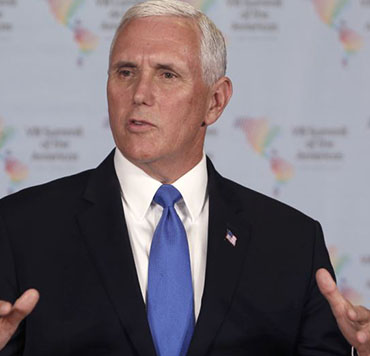PORT MORESBY, (Reuters) – The United States and China swapped barbs over trade, investment and regional security at an Asia Pacific Economic Co-operation (APEC) summit yesterday, as growing fault lines among members suggested little prospect of consensus at the weekend meeting.
Speaking in the Papua New Guinean capital, U.S. Vice President Mike Pence said there would be no end to American tariffs until China changed its ways, after its president, Xi Jinping, warned that the shadow of protectionism and unilateralism was hanging over global growth.
Illustrating the impasse between the world’s two largest economies, a diplomat involved in negotiating an APEC leaders’ declaration told Reuters trade was a sticking point, and the host nation was having trouble finding language acceptable to all.
Pence took direct aim at Xi’s flagship Belt and Road programme, which China has been promoting to Pacific nations at APEC, saying countries should not accept debt that compromised their sovereignty.
“We do not offer constricting belt or a one-way road,” Pence told the APEC CEO summit, a precursor to the official leaders’ meeting, held on a cruise liner tethered in Port Moresby’s Fairfax Harbour.
China’s efforts to win friends in the resource-rich Pacific have been watched warily by the traditionally influential powers in the region – Australia and the United States.
U.S. President Donald Trump is not attending the APEC meeting, nor is his Russian counterpart, Vladimir Putin.
Xi, who is staying in Port Moresby, has been feted by PNG officials and stoked Western concern on Friday when he held a meeting with Pacific island leaders, in which he pitched the Belt and Road initiative.
Speaking before Pence, Xi said there was no geopolitical agenda behind the project, which was unveiled in 2013 and aims to bolster a network of land and sea links with Southeast Asia, Central Asia, the Middle East, Europe and Africa.
“It does not exclude anyone. It is not an exclusive club closed to non-members, nor is it a trap as some people have labelled it.”
There have been concerns that small countries that sign up for infrastructure projects will be left with debt burdens they cannot service, something Pence highlighted.
“Do not accept foreign debt that could compromise your sovereignty. Protect your interest. Preserve your independence. And just like America, always put your country first,” he said.
Sri Lanka formally handed over commercial activities in its main southern port of Hambantota to a Chinese company last December as part of a plan to convert $6 billion of loans that Sri Lanka owed China into equity.






